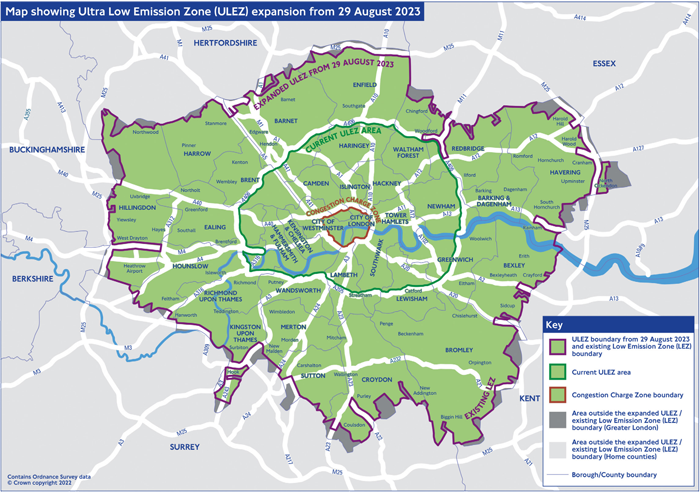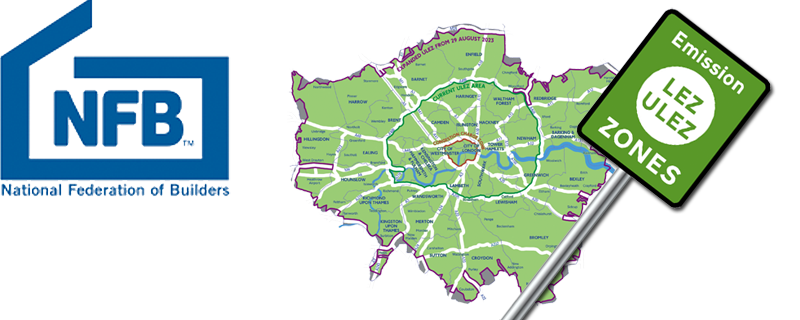ULEZ expansion will hurt trades the most
On 29 August 2023, the ULEZ charge of £12.50 will be expanded to Greater London and for construction, it couldn’t come at a worse time.
Richard Beresford, chief executive of the National Federation of Builders (NFB), said:
“Construction inflation is higher than the national average and the rising cost of living is biting workers and their clients. Whilst addressing air quality is imperative, the ULEZ expansion feels like a tax, rather than a strategic mission to improve the health of Londoners. Some older vehicles over 3.5 tonnes may be liable for more than £300 a day and others under that weight, up to £127.50.”
Speaking on FixRadio, the London Mayor Sadiq Khan told Clive Holland that tradespeople are exposed to high levels of pollution by driving their own vehicles and so he urged them to support the ULEZ expansion as to not lose days from work from ill health related to air quality.
Mayor Khan also highlighted that, after listening to tradespersons, his van scrappage scheme had been increased to £7,000, or £9,500 for those opting for an electric vehicle, while the retrofit grant rises to £6,000.
Unfortunately, retrofitting, which is run by the Clean Vehicle Retrofit Accreditation Scheme (CVRAS), would not cover pre-Euro 6 diesel vehicles, pre-Euro 4 petrol vehicles or LPG. A change of engine will not be accepted unless an expensive full rolling road test is completed.
Transport for London (TFL) estimates that 30,000 non-compliant vans currently use the expanded ULEZ daily, but analysis conducted by Autotrader identified that there were only 5,181 compliant vans currently for sale across the whole of London and the South-East.
An NFB search of the Autotrader website within 60 miles of the capital revealed that the cheapest diesel compliant small van was £4,000 and had 128,000 miles on the clock. Similarly, the cheapest compliant medium sized diesel van was £4,800 but had done 265,000 miles.
A few EV vans are available but the cheapest was a small form with a range of sixty miles and cost £4,400.
In addition, there are concerns around the broader strategy, particularly the scrappage scheme and suggestion that the tube could be an alternative for travel.
Scrappage schemes generate new emissions through destruction and new vehicle manufacturing, driving up prices of vans nationally. Some have also argued for the potential of sending old vehicles to developing nations.
Concerns at the lack of effort to improve air quality on the tube remain a talking point and a King’s College London report in 2019 found the air in Tube carriages is 18 times worse than the roadside air above ground.
Richard Beresford continued:
“With fewer than five percent of London’s workers being employed in construction, other ideas could be explored. The £7,5000 grant could be set aside as a credit for fines. Trades could be given free parking. Removed vehicles could be sold to developing nations at heavily discounted rates, or air quality on the tube could be drastically improved for its five million daily passenger journeys.
Improving air quality is vital but this blunt ULEZ instrument, which harms existing businesses, makes new ones harder to start, doesn’t improve the area where air quality is worst, all while creating more global carbon, feels as though it could do with a tweak or rethink.”










Leave a Reply
Want to join the discussion?Feel free to contribute!